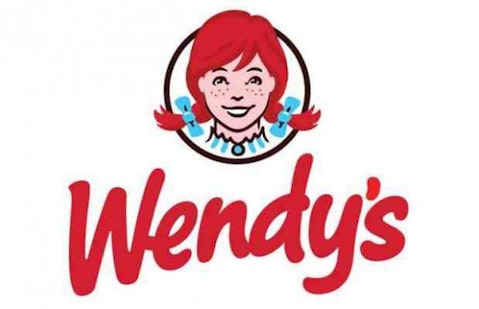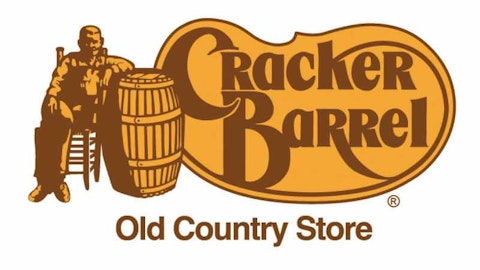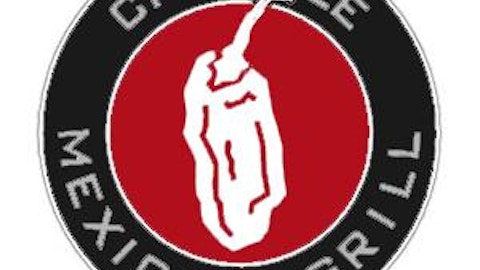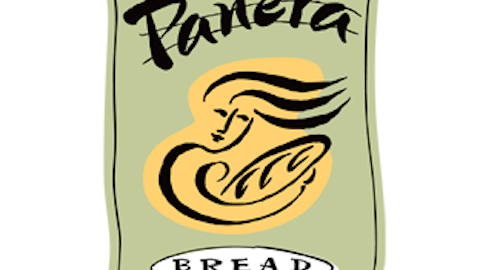Established quick-food brands have been successful around the globe and promise to keep delivering growth as the world’s population becomes younger, more concentrated in cities and holds larger amounts of discretionary income. The Wendy’s Company (NASDAQ:WEN), Yum! Brands, Inc. (NYSE:YUM) and Tim Hortons Inc. (USA) (NYSE:THI) are three of these big companies in the restaurant business with fairly large moats that could be interesting investment opportunities. Let’s take a closer look:

Wendy’s: In search of growth
Wendy’s is the fourth-largest restaurant company in the U.S. and despite not having delivered the greatest results over the past year, its most recent quarter came in just fine, and its future looks quite bright. The main reasons behind this confidence are its revamping plans that include store overhauling, international expansion, and branding initiatives.
The Wendy’s Company (NASDAQ:WEN) is currently going through an important transition involving strong marketing campaigns and new products, and early results look promising. The firm is expected to deliver an average annual growth of 20% over the next five years (Zacks). Its transformation started with the Arby’s brand sale in 2011, which shifted the firm’s focus completely to The Wendy’s Company (NASDAQ:WEN) restaurants; ever since, it has been exploring several ways to widen its restaurants’ margins. For instance, its store remodeling strategy has had outstanding results, and management is already working on further design and image innovations. Moreover, due to the fact that this company holds an important market share in the late-night food business, an increase in late-night hours will also drive growth in the years to come.
Expansion should also come from overseas markets, which currently represent 5% of the firm’s total stores. The recent incursions in Argentina, the Philippines and Japan should contribute to short-term revenues, while several others, including China and Brazil, provide plenty of development chances in the long term. Meanwhile, the firm relies on a franchise business model that provides it with steady cash flow. That’s something to take into consideration, especially as it yields 2.35% in dividends.
Having said this, I would recommend buying this stock while it still trades below industry average valuations, at a 1.2 price-to-book and a 0.9 price-to-sales ratio, versus the respective 6.7 times and 2.3 times industry means, as the stock price could rocket at any time.
Yum! Brands: International presence
Even larger than The Wendy’s Company (NASDAQ:WEN) is Yum! Brands, Inc. (NYSE:YUM). This firm owns KFC, Pizza Hut and Taco Bell. It operates in over 120 countries and qualifies as the biggest quick-service restaurant company based on the number of system units. Holding such an important presence worldwide and some of the strongest brand names in the industry provides the firm with a considerable moat that helps it keep its competitors lagged, a trend that is further reinforced by several advantages derived from its scale and its leverage over suppliers.
Yum! Brands, Inc. (NYSE:YUM) not only leads in the U.S., but also in China, an emerging economy delivering higher GDP growth rates than developed countries. China offers an increasing amount of disposable income, with a huge middle class that grows by 5% each year. Morningstar analysts estimate that the firm could expand to roughly 25,000 locations in this country.
Even though China is and will most likely continue to be Yum! Brands, Inc. (NYSE:YUM) main profit source, other developing countries like India, the Philippines, Indonesia, Malaysia and Vietnam should help drive EPS growth in the years to come. Meanwhile, the firm relies on a franchise business model that provides it with steady cash flows that have allowed it to yield 1.9% in the form of dividends and to face strong share repurchase programs. “During the past three years, Yum! Brands, Inc. (NYSE:YUM) returned almost $2.4 billion of cash to shareholders via share buybacks and dividends. The firm targets an annual dividend payout ratio of 35% to 40% of net income.” (Morningstar). Returns have also been outstanding. Last year, the company reported a 29% return on invested capital, and a 66.6% return on equity, both comfortably above the industry averages.




